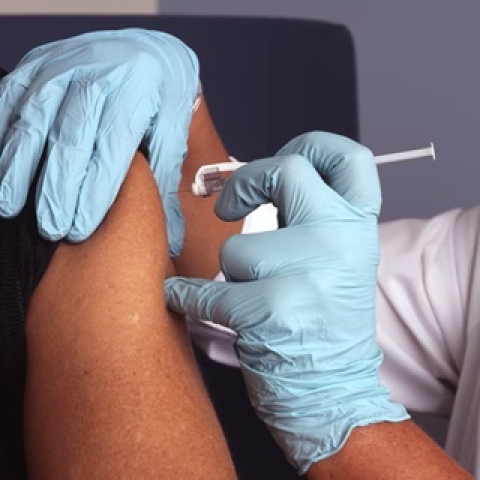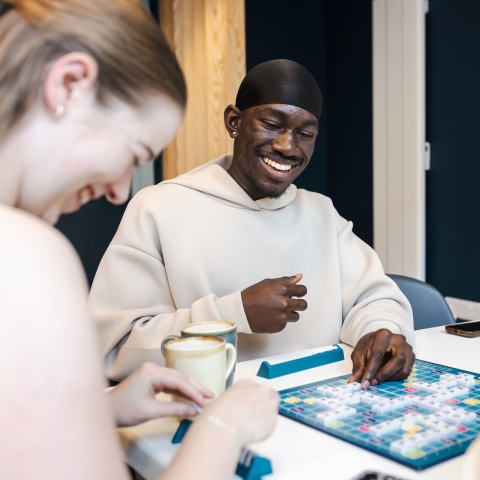
We want you to be able to access everything you need in one place! So we hope you find the information on this page useful.
You'll find information on everything from University services, banks, healthcare and things to do in Portsmouth.
Internal services
Getting help at MyPort Information Hub
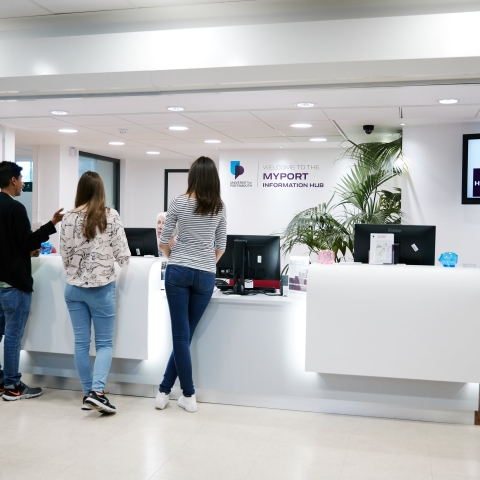
Careers and Employability Service

University Library

English language development
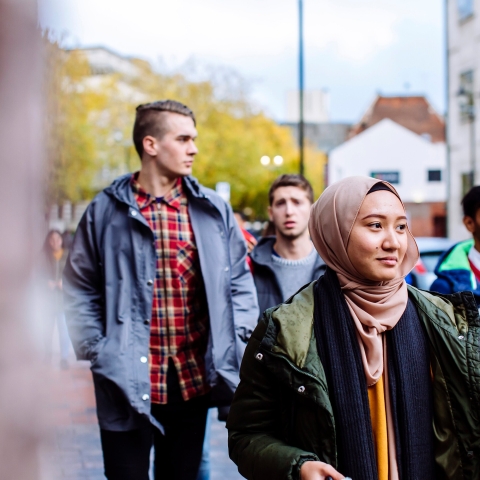
Sport in Portsmouth
From water sports to football and quidditch - few cities can compete with Portsmouth's sports opportunities.
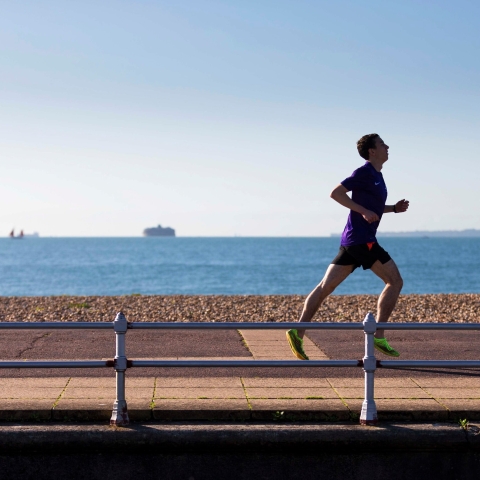
Chaplaincy
Whether you have faith or not, to talk or be still, our space is yours. The Chaplaincy is there to support all students, of any faith or none.

Placements
Increase your employment opportunities and strengthen your skills by completing a placement.

Disability Advice
Here you'll find expert support for students with disabilities or additional learning needs. Get confidential advice and support on disability-related issues.
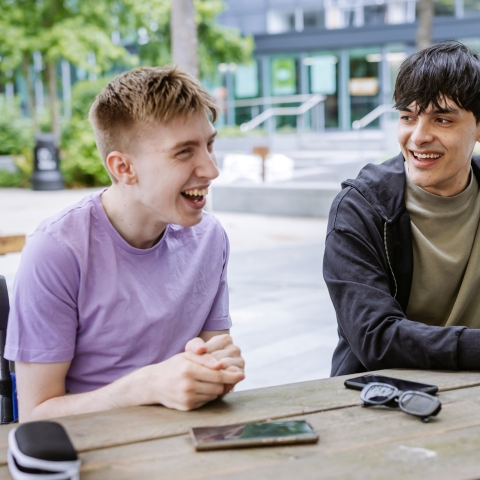
Academic skills support
Looking to improve your academic skills and enhance your uni work? Our faculty learning support tutors can help you develop key study skills, and you can also access our online learning resources too.

Welcome to Student Wellbeing
Get free, confidential help
Student Wellbeing is the hub for learning, advice and support for your emotional wellbeing and mental health. You can get free, confidential help for a wide range of personal and emotional concerns.
Mark Harold, Wellbeing Adviser: We are the Student Wellbeing Service.
Michelle Dadachanjii, Counsellor: As a student at the University of Portsmouth, we want you to fulfil your potential and have a life-changing student experience. At the heart of this is the personalised package of support that we offer with a focus on wellbeing and resilience that helps you to meet your academic goals.
The Student Wellbeing Service is the hub for learning, advice and support for your emotional wellbeing and mental health.
Steve Daly, Wellbeing Adviser: If you are new to university life, then you may be facing a number of life challenges. Transitioning from home to a new life, financial independence, new friendships and relationships, living independently and, of course, new academic challenges and expectations.
For all students, each level of university learning comes with new challenges and different kinds of academic stress and pressure. And this year, there is the new blended and connected approach to learning with all the changes and challenges due to the global pandemic.
When you're facing challenges, it is likely you will find yourself feeling stressed, worried, unhappy or anxious at times. This does not mean there is something wrong with you. Learning to cope with these challenges constructively provides opportunities for growth and personal development. The knowledge and tools you will develop are life skills that you can take forward and use long after graduation.
But if you do start to struggle at any point, please do come see us straight away.
Mike Pink, Mental Health Adviser: The Student Wellbeing Service is a team of practitioners with a broad range of experience, expertise and skills. This allows us to provide a comprehensive package of support, including good links with the NHS and other specialist support services. We have mental health advisers, counsellors and wellbeing advisers who offer one-to-one support. Everything is set up so you can safely come in and see us for these*, or you can book a phone or video call instead. Alternatively, you can text chat anonymously with our wellbeing advisers via our WhatsUp app.
(* Note that routine in-person appointments may be suspended during lockdowns, but our reception will remain open or you can call to find out more about the best way to seek support.)
Mark Harold, Wellbeing Adviser: When you register for support with us, we will work with you to plan a personalised support pathway. This may include one or more events from our courses and workshops programme, where you can learn positive wellbeing skills in relaxed and friendly online sessions. This includes our popular Be Your Own Best Friend workshop and our Compassionate Mind course. You can browse an extensive range of self-help information with our online resources.
Ruth Geddes, Senior Wellbeing Adviser: We run a weekly wellbeing cafe. The cafe has transferred well to a virtual format, and we will be looking to arrange some safe in-person activities as the academic year gets underway. We also support students who have taken the Welcome Ambassador pledge and are following the University's student leadership pathway. The Welcome Ambassador scheme is a great way of easing the transition into Uni life by connecting with other students. Check out the Welcome Ambassador Facebook page for more details.
Michelle Dadachanji, Counsellor: So, as you can see, there are a range of different options designed to give you the choice of how you may wish to use our service. For more detailed information about everything that we provide and how to access the service, please visit our website and remember, if you think you need support, please come and see us.
Tips from our International Student Ambassadors
Need a little helping hand?
Advice from our international students who have first experience of the journey you're about to go on.
Speaker 1 My top tip for making the most out of your university experience is using the college library, the library is three storeyed and houses all the references, books and journals that you would require for your course. It can also be accessed online, along with a lot of portals, like Statista, IBIS, Gartner, which is completely free of cost. You just have to make an online account and you can use all the information and databases on it for free.
Speaker 2 So my top tips for your first few weeks at university. My first one would be if you're living in any kind of student accommodation or shared house, is to spend as much time in those first few weeks in the communal spaces that you have. That might be the kitchen or a common room or something like that. But what this does, I think, is it enables you just to start those conversations without the barriers of having to do the awkward knock on your neighbour's door and instead you get to meet people early. And then, I mean, I found personally the people I met in those first few weeks were the people that I was friends with for the rest of my course. And we went to fresher's fairs together and things like that.
Speaker 3 My top tip for making the most out of your time at university is definitely signing up for everything, whether it's networking sessions for your course, signing up for society, or even going on one of the summer schools that the university hosts. One hundred percent, if you don't take the chance, it's probably something you'll regret.
Speaker 4 Tip number one, get to know your lecturers. Now, I know it may feel not, you know, normal or casual based on the background you just come from. But most university lecturers are approachable, so you get to know them and they'll give you, you know, tips and advice on how to best succeed in an academic setting. And at the same time, outside of the university studies.
Speaker 5 My top tips to have a great uni experience would be firstly, go out with your friends, go and enjoy yourself, make lifelong experiences. It's not just about studying, it's about everything else as well. You're in your 20s. Do go and do something. Go and go and love life.
Speaker 6 Use the career and employability service, not only during your studies, but also after you finish your studies. Whether you need to update your CV or have some idea or need some advice about your future career, there will be someone who will help you.
Speaker 4 A top tip I would have is to carry a raincoat instead of an umbrella because if the winds are a bit stronger, you find that your umbrella gets carried away or breaks.
Speaker 2 And the second tip is similar. And that is just to say yes to as many opportunities as possible. In your first few weeks, there will be societies, there will be talks, there will be tours. Say yes to as many of these as possible. And you'll find you have so many more opportunities, so many more experiences that you carry forward for the rest of your time at Portsmouth.
Speaker 3 Another top tip is getting a part time job. This could be anything from working at a cafe such as myself, signing up later on to be a student ambassador or helping out at grocery stores. It's just a really good source of income and it gives you a chance to meet new people that you may not have met at university. And a majority of the skills that you learn on the job is something that you can use in a future career.
Speaker 4 Tip number two, get out of your comfort zone, you know, not everything is all about academics while you're at university, you know, and it is very simple to go from, you know, your accommodation to your lectures, to your seminars, to your workshops, and then you call it a day. Well, you know, when you don't get out of your comfort zone or you get out of the routine you have built, you know, you don't challenge yourself. And for growth, you need to challenge yourself.
Speaker 6 Don’t miss any extracurricular meetings because during these kind of meetings, you never know who you will get introduced to or what kind of precious information you will get.
Speaker 5 Join a society. Societies are so amazing they are there for you to make friends with people that are interested in the same things as you are, it's not just about your course-mates. It's about making friends, you know if you're interested in music, join the music club and then you find other people who are interested in music. It's just so simple. And I know a lot of people, including me in my first year, will say, Oh, but I'm too busy. Yes, you're busy. But at the same time, it's not just about as I said, it's not just about studying. It's not just about working. It is also about making friends and making experiences and not just in your uni course, but also on other things.
External services
Friends International

Host UK

Portsmouth Visitor Information Service

Tourism South East

Kings Theatre
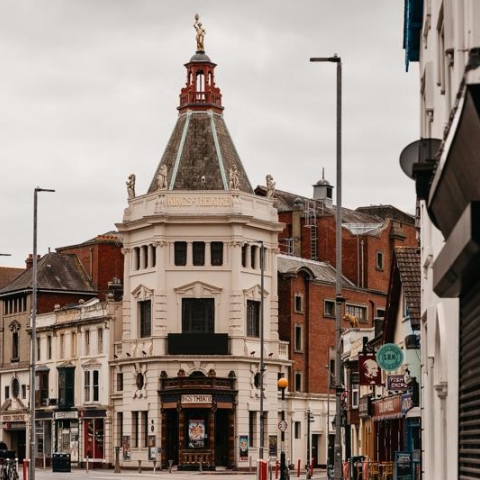
New Theatre Royal

Wedgewood Rooms

Living in the UK
Banks
Find out how to open a bank account in the UK. You may need to provide the following documents:
- Proof of your identity (such as your passport or EU identity card)
- If you're from outside the EU, your student visa in your passport or Biometric Residence Permit card
- A letter confirming you're a registered student
- Your University of Portsmouth student ID card
- Bank supporting letter from your home country
- Proof of local address – such as your halls of residence contract
- An allocation notice or tenancy agreement from an approved letting agency
Here are some banks that you may wish to open an account with - please remember that each bank will have specific requirements:
Medical
Doctor's Surgery

Where to go for urgent medical help
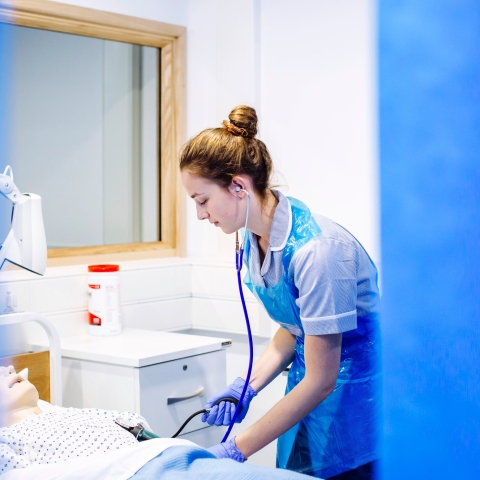
Boots - HPV vaccination
